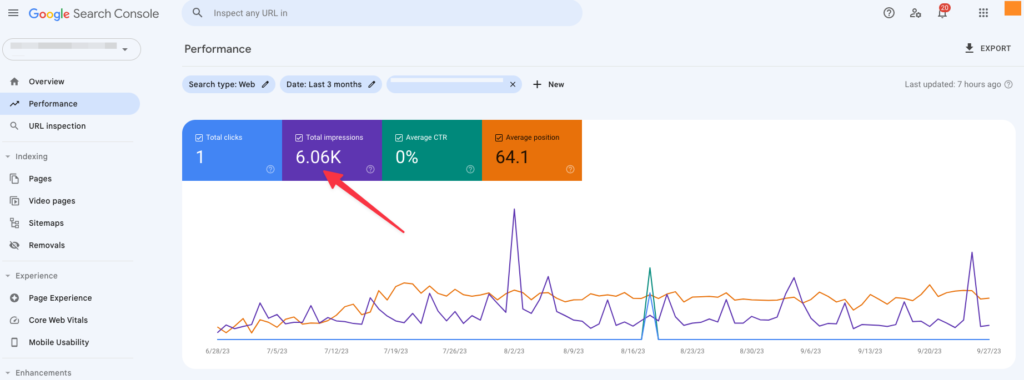While others compete around keywords, you should focus on topics and customer journeys. Search algorithms are updated to let users find what they’re looking for.
By the end of this issue, you will be able to:
- Focus on right metric for keyword research
- Understand why focusing on keywords is a mistake
- Understand how people search (its not keywords)
Organic traffic is a riddle very few can attempt to solve, let alone solve it. Its frustrating to see traffic remain flat, or worse, tank. When your marketing efforts don’t meet expectations its time to go back to white board and start brainstorming of the cause.
The problem isn’t that millions of pages are trying to rank for your target keywords, the problem is you are doing it wrong. Very few pages are rightly optimized and hence the competition is minimal at the fundamental levels.
Ranking for target keywords isn’t difficult, optimizing for keywords is most slippery slope that many fall into. Ineffective keyword research makes the whole SEO campaign worthless.
Perform these 3 simple steps to take care of keyword research.
Table of Contents
Step 1: Start focusing on long tail keywords
The way all search algorithm updates are progressing, targeting long tail keywords are going to become more and more profitable – especially for new blogs. Long tail keywords have less competition, high conversion rate and very high intent. I’d be stupid if I don’t target long tail keywords, just because the search volume is less. If done well, keyword research can help you find amazing long tail keywords with decent search volume.
Even if the search volume is 0, you shouldn’t ignore writing content around the keyword. Reason? Search volumes are almost never accurate – if this solves a real world problem, 0 search volume doesn’t make sense. On top of that, 15% of searches are new to Google, even today.
Step 2: Stop focusing on search volumes
To continue on what we saw previously. Search volumes are illogical in so many ways. Focusing on search volume to pick topics is full of problems, only time you should focus on search volume is when you’re optimizing for branded searches. Here are a few reasons why focusing on search volume is a mistake:
- Lack of relevance: High search volume seems attractive, but in terms of relevance not all keywords might be fruitful. Most high search volume keywords are informational and the commercial intent isn’t that high.
- High competition: High search volume keywords have higher competition, and usually these keywords are short tail.
- Wrong direction: When you focus on search volume primarily you fail to focus on what’s actually important for your audience. You ignore the user intent and fail to anticipate the changing search trends.
Step 3: Update content regularly
This is the strategy I have used to get 100k visitors in less than 30 days. It is so effective that I skip the keyword research part for later, I can count on this move for my life. However, there’s risk involved here. Updating content works better for a site that has decent traffic already.
Once the page in indexed in search, use Google search console to find impressions data of the pages that are live on your site. You can filter specific pages (like shown below) or check the impressions data in descending order to find to performing posts (in terms of impressions) and start updating the content based on the keywords.

When updating the content, make sure you match search intent of the search terms that the users are using. This is what most people aren’t doing. Sprinkling keywords isn’t updating content, it’s simply keyword stuffing.
Identify the nature of the keywords and update accordingly. If you find a keywords that’s commercial in nature, think of all the scenarios that someone would consider spending on the product/service they’re searching for.
Next, identify all the questions they might related to each of those scenarios and address those questions as sub-headings or FAQs. Even though FAQs have lost its place from SERPs, it still holds significant value for UX.
Video Guide
78% B2B marketers rely on keyword research at the time of content creation and hence surpass the revenue goals. Check out this video guide on keyword research to learn how to do it the right way.
Today’s action step →
- Go to Google search console
- Filter past 6 months data
- Check impressions data and sort by high to low
- Pick pages that get highest impressions and optimize those pages for all the keywords
- Once updated, request to crawl in Google search console
SEO this week
- Google is making the SERPs simpler, less cluttered and less distractions with SGE, says Gary IIlyes
- Gary Illyes shares a gold mine into what Google is upto
- Microsoft announced dedicated tags to exclude pages from Bing chat
- If you use Wix, it now supports IndexNow for faster indexing on Bing
- Bing cleverly shows Bing chat impressions data in webmaster dashboard
Masters of SEO
- Lily Ray dug into the latest algorithm update. Here’s what she found & documented
- Travel is one of those niches that the Helpful content update has affected for good. Here’s what Dan Taylor has found
- Scale Enterprise SEO to get maximum results
- How to rank product pages – 36 steps checklist
- Want to leverage Google Discover for SEO? Here’s video discussion by Aleyda Solis talking about that
How can I help you?
I put a lot of effort into coming up with a single edition of this newsletter. I want to help you in every possible way. But I can do only so much by myself. I want you to tell me what you need help with. You can get in touch with me on LinkedIn, Twitter, or email to share your thoughts & questions that you want to be addressed. I’d be more than happy to help.
Whenever you’re ready to dominate SERPs, here’s how I can help:
- Sit with you 1-on-1 & create a content marketing strategy for your startup. Hire me for consulting
- Write blogs, social posts, and emails for you. Get in touch here with queries (Please mention you found this email in the newsletter to get noticed quickly)
- Join my tribe on Twitter & LinkedIn where I share SEO tips (every single day) & teaser of the next issue of Letters ByDavey

